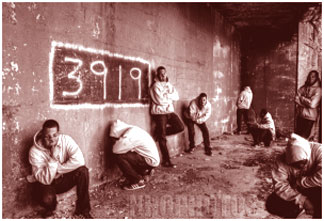
Depression is more likely to affect teens engaging in casual lovemaking
Photography: nhophotos.com
From yourblackworld.com
If you’re struggling to convince your teen to wait until engaging in sex, this may be yet another reason you can add to your list for them: Teens who have casual sex have a higher risk of depression, according to research that finds the same does not hold true for teens in a committed relationship.
“Many historical and media perspectives have presented adolescent sexuality as an indicator of problematic or even socially deviant behavior,” says Jane Mendle, assistant professor of human development in Cornell University’s College of Human Ecology. “But this study and other recent findings are showing that’s not the case, and adolescent dating and sexuality can be viewed as normal developmental behavior.” The research revealed that casual sex increases a teenager’s odds for clinical-level depression nearly threefold. The effects are the same for both genders, though younger teens (13-15 years old) who engaged in “non-romantic sex” faced a significant risk for depression.
Researchers designed the study to identify sources of depression and to isolate factors that could be contributing to it. “We designed the study to give us a purer way to isolate many of the factors that could be contributing to depression,” Mendle says. “It allows us to compare specific types of social activities—in this case, dating and romantic and nonromantic sex—to see their overall effect.”
Mendle believes adolescent sexuality is important to study because it is closely tied to how well people transition into adulthood. “One of the hall-marks of adolescence is the formation of romantic relationships, and we know that what happens in adolescence is strongly related to your psychological, physical and financial well-being for years to come,” he says. “Findings like this can help shape the dialogue and public debate about how to best support teen s*xual health, psychological development and other areas.”